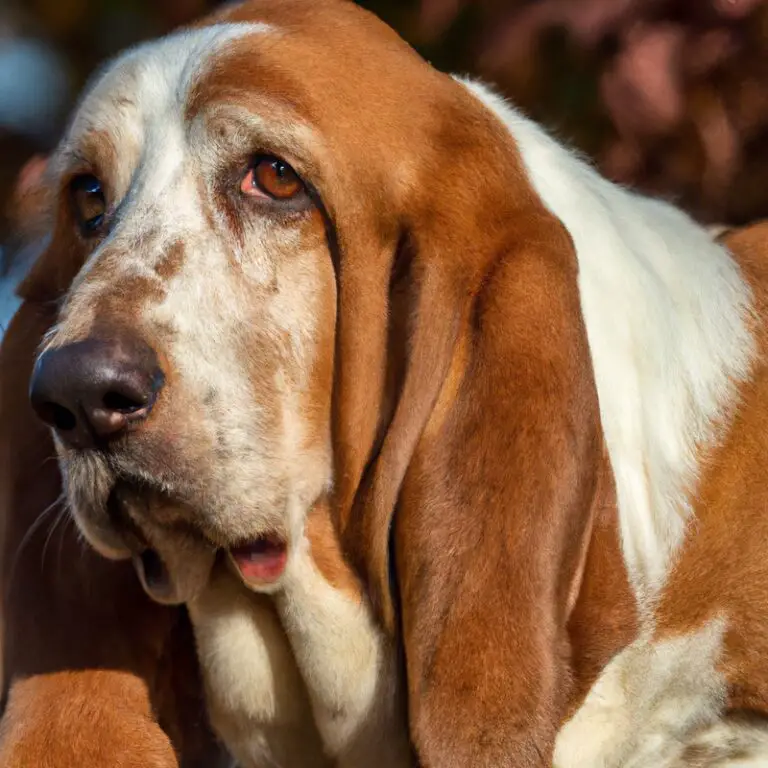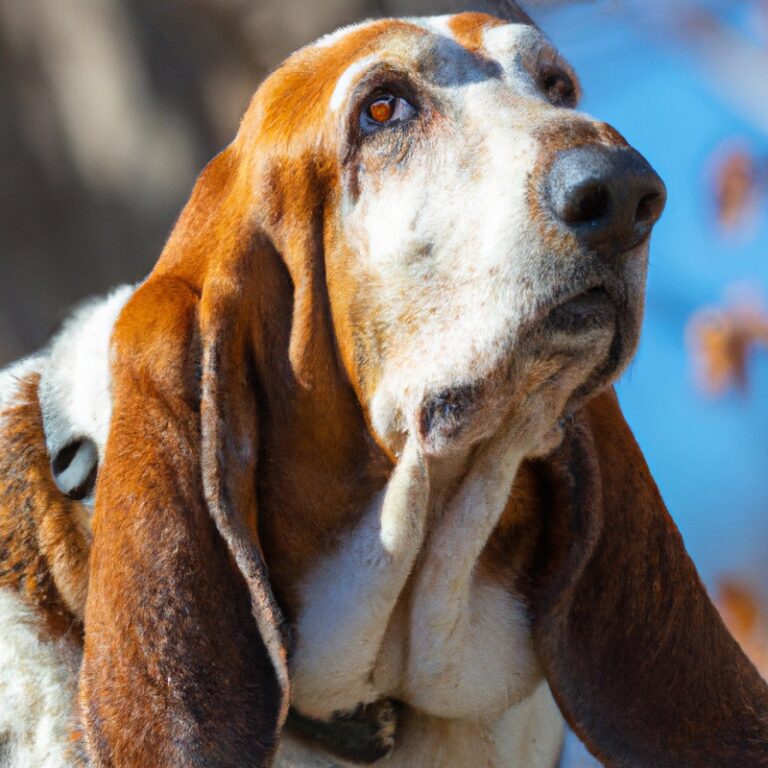Can Basset Hounds Be Trained For Search And Rescue Work?
Key Takeaways:
- Basset Hounds can be trained for search and rescue work.
- Their exceptional sense of smell and tracking ability make them suitable for search and rescue operations.
- While their short stature may pose some challenges, Basset Hounds can excel in certain aspects of search and rescue work.
- Proper training and socialization are key factors in harnessing the potential of Basset Hounds for search and rescue tasks.
Are Basset Hounds capable of being skilled search and rescue dogs?
As an expert in canine training, I’ve seen these beloved droopy-eared companions defy expectations time and time again.
Basset Hounds possess a unique combination of natural abilities that make them surprisingly well-suited for search and rescue work.
From their sleuthing roots to their extraordinary scenting skills and unwavering persistence, these dogs have what it takes to excel in this vital line of duty.
But, of course, training plays a crucial role in unlocking their full potential.
In this article, we’ll explore the natural abilities of Basset Hounds, the training techniques required, and the challenges that may arise along the way.
Get ready to be amazed by the potential of these delightful hounds!
| Aspect | Yes | No |
| Physical Characteristics | Basset Hounds have a strong sense of smell and good endurance. | Basset Hounds are not known for their agility or speed. |
| Training Difficulty | Basset Hounds can be trained for search and rescue work with patience and consistency. | Basset Hounds may struggle with complex tasks due to their independent nature and stubbornness. |
| Search and Rescue Success Rate | Basset Hounds have been successfully trained for search and rescue work in certain situations. | Basset Hounds may not excel in all search and rescue scenarios. |
| Alternative Breeds | There are other dog breeds that are more commonly used for search and rescue work. | Other dog breeds may be better suited for search and rescue work. |
Basset Hounds as Search and Rescue Dogs
Basset Hounds can be trained for search and rescue work, although they are not commonly used for this purpose.
Their keen sense of smell and determination make them suitable candidates for tracking and trailing tasks.
However, their physical limitations, such as their short legs and heavy build, can hinder their agility and speed.
Despite these challenges, Basset Hounds have been successful in locating missing persons in certain situations.
Proper training, patience, and adaptability are essential for maximizing their potential as search and rescue dogs.
The Natural Abilities of Basset Hounds
Sleuthing Roots of Basset Hounds
Basset Hounds have a long history rooted in sleuthing.
They were bred for their exceptional scenting capabilities, which made them excellent hunting partners.
These dogs have a keen sense of smell and can track scents over long distances.
Their low, long bodies and droopy ears help trap scent particles, enhancing their ability to follow trails.
Basset Hounds also possess a natural instinct to investigate and follow scents, making them well-suited for search and rescue work.
Their inherent sleuthing roots make them a valuable asset in various search and rescue operations.

Extraordinary Scenting Skills
Basset Hounds have extraordinary scenting skills.
Their noses are highly sensitive and well-developed, making them excellent trackers.
They possess a natural instinct to follow scents and can easily pick up on even the faintest of smells.
Their ability to sniff out and locate specific scents is remarkable.
These scenting skills make Basset Hounds well-suited for search and rescue work, as they can track and locate missing persons or objects with great accuracy.
Their keen sense of smell is truly impressive.

Persistence and Stamina
Basset Hounds are known for their persistence and stamina, making them well-suited for search and rescue work.
They have a strong drive to follow scents and will continue tracking for long periods of time.
Their low, sturdy build allows them to navigate through difficult terrain without tiring easily.
Bassets possess a tenacious personality, never giving up on a task once they are focused.
With their natural abilities and determination, Basset Hounds can excel in search and rescue operations.

Training Basset Hounds for Search and Rescue Work
Starting Early: Puppy Training
Starting early with puppy training is essential for preparing your Basset Hound for search and rescue work. Begin with basic obedience commands like sit, stay, and come.
Introduce scent discrimination exercises, gradually teaching them to identify specific scents.
Focus on building their stamina and endurance through regular exercise and play. Socialize them with different people, animals, and environments to build their confidence.
Provide mental stimulation with puzzle toys and interactive games.
With consistent and positive training, your Basset Hound will be on the right track to becoming a search and rescue dog.
Focus on Scent Discrimination
Scent discrimination is a crucial skill for search and rescue work. Basset hounds have a keen sense of smell and can be trained to identify and distinguish different scents.
During training, they are taught to locate specific scents, such as those of missing persons or items, and indicate their findings.
This ability makes them valuable assets in search and rescue operations, as they can track scents over long distances and in challenging terrains. With consistent training and practice, basset hounds can become proficient in scent discrimination and contribute effectively to search and rescue missions.
Building Stamina and Endurance
Building stamina and endurance is essential when training Basset Hounds for search and rescue work. I focus on gradually increasing their exercise time and intensity to build up their endurance.
Long walks, jogging, and swimming are great activities to improve their stamina.
I also incorporate interval training, where I alternate short bursts of intense activity with periods of rest. This helps them build both physical and mental stamina.
Additionally, I provide a balanced diet and ensure they stay hydrated during training sessions.
By properly conditioning their bodies, Basset Hounds can excel in search and rescue tasks.
Teaching Basic Commands and Obedience
Teaching basic commands and obedience to Basset Hounds is an essential part of their search and rescue training. I start with simple commands like sit, stay, and come, gradually building up to more advanced commands.
Positive reinforcement is key, using treats and praise to reward good behavior.
Consistency is important, as Basset Hounds can be stubborn. Regular, short training sessions are more effective than long ones.
I also make sure to practice obedience in different environments to ensure they respond in any situation.
Socializing Basset Hounds
Socializing Basset Hounds is essential for their development and success in search and rescue work.
Introduce them to different environments, people, and animals from an early age.
Take them to parks, dog-friendly events, and obedience classes.
Encourage positive interactions and reward good behavior.
Gradually expose them to various stimuli to prevent fear or aggression.
Regular socialization will help Basset Hounds become well-rounded, confident, and adaptable search and rescue dogs.
Providing Mental Stimulation
Providing mental stimulation is essential when training Basset Hounds for search and rescue work. I ensure that their training includes activities that challenge their minds and keep them engaged.
I use interactive toys and puzzles to encourage problem-solving skills.
Engaging in scent-based games, like hiding treats or toys, also helps stimulate their natural abilities. Regular training sessions with new tasks and obstacles keep their minds sharp.
Lastly, I incorporate positive reinforcement to keep them motivated and eager to learn.
Mental stimulation is a crucial aspect of their training to develop their focus and alertness.
Challenges of Training Basset Hounds for Search and Rescue Work
Short Attention Spans
Basset Hounds have a reputation for having short attention spans. They can easily become easily distracted and lose focus during training sessions.
This can pose a challenge when it comes to training them for search and rescue work.
To overcome this, it is important to keep training sessions short and engaging, using positive reinforcement and rewards to maintain their interest. Breaking tasks down into smaller, manageable steps can also help them stay focused.
Patience and consistency are key in working with their short attention spans while training them for search and rescue work.
Independent Nature
Basset Hounds have an independent nature, which can present a challenge when training them for search and rescue work. They are known for their determination and stubbornness, which means they may not always follow commands or instructions.
This independent streak can make it difficult to keep them focused on the task at hand, as they may become easily distracted by scents or their own desires.
However, with patience, consistency, and positive reinforcement, it is possible to work with their independent nature and train them effectively for search and rescue work.
Physical Limitations
Basset Hounds do have some physical limitations that can make training for search and rescue work challenging.
First, their short legs and long bodies make it difficult for them to navigate rough terrain or climb obstacles.
Second, their heavy build can reduce their agility and speed compared to other breeds.
Third, their droopy ears and loose skin can become easily tangled or injured in dense vegetation or tight spaces.
Despite these limitations, with proper training and adaptations, Basset Hounds can still excel in search and rescue work.
Final Verdict
I firmly believe that Basset Hounds can be trained for search and rescue work.
Their natural abilities, including their sleuthing roots, extraordinary scenting skills, and persistence and stamina, make them well-suited for this task.
By starting early with puppy training, focusing on scent discrimination, building stamina and endurance, and providing mental stimulation, Basset Hounds can be effectively trained for search and rescue work.
While there are challenges to overcome, such as their short attention spans, independent nature, and physical limitations, with the right approach and dedication, Basset Hounds can excel in this field.
Trust in their abilities, and you’ll have a loyal and competent search and rescue partner.







